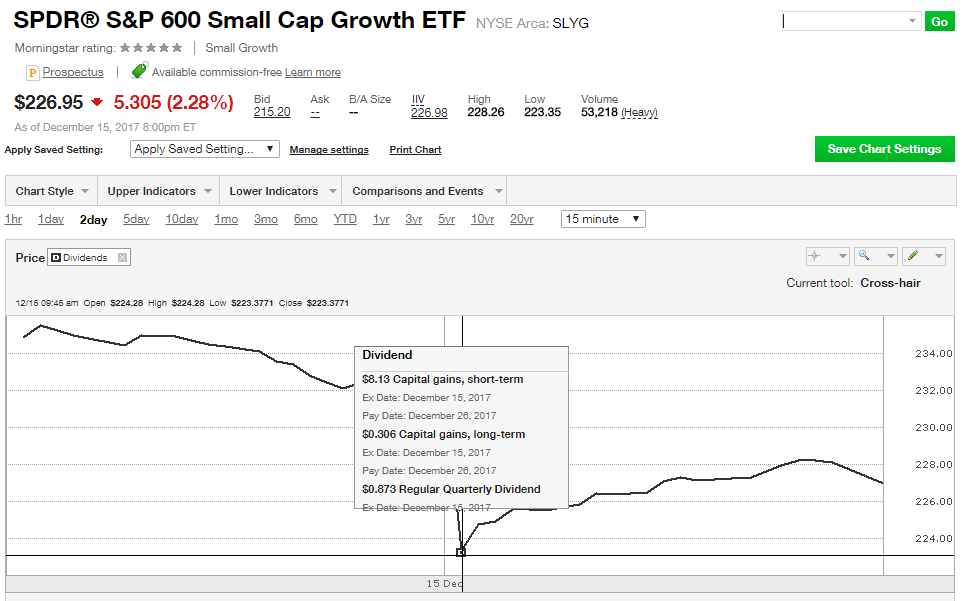Today I noticed several ETFs I own, including SLYG, opened at a significantly lower value than they closed at yesterday (SLYG was $7.975 lower to be exact). Apparently yesterday a dividend was declared and today was the ex-dividend date. I am familiar with the concept of dividends and I understand that a stock's value should drop by the amount being distributed as a dividend. However, that does not seem to fully explain this morning's drop. TD Ameritrade reports that today was the ex date for an $8.13 "capital gains, short-term", a $0.306 "capital gains, long-term", and a $0.873 dividend which sums to $9.309.
My understand was "capital gains" refers to the gain in value of an investment asset upon sale of said asset, but I did not sell my shares. It seems the market is treating these "capital gains" as if they are dividends, but I am not totally sure though because the price drop was not exactly equal to the gains or the gains + dividends.
How are these capital gains different from dividends? Will I be receiving them as a cash distribution at the same time as my dividends? Are they taxed at a different rate? If they are effectively the same, why make the distinction in the first place?

